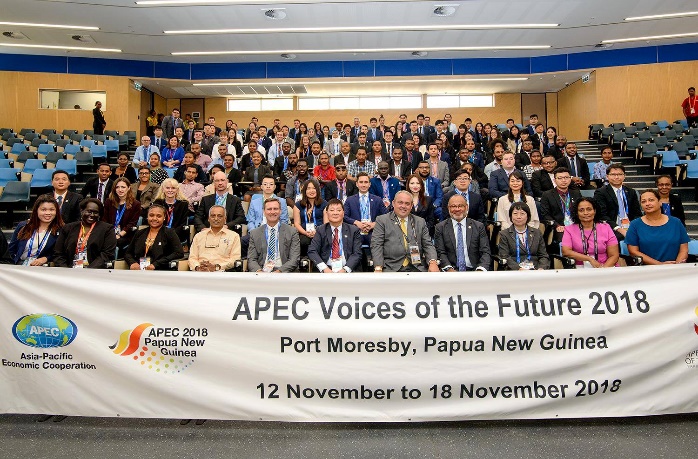“Your country’s present is the future we hope for. I don’t want you all to forget that”
These words are part of a powerful statement made by a delegate of Papua New Guinea. At the Voices of the Future program, the delegations broke up into four groups and discussed one of the subtopics of this year’s theme “Harnessing Inclusive Opportunities, Embracing the Digital Future.” After an hour-and-a-half group discussion, delegates were all brought back together, and each group presented the summary of the intra-group conversations and some policy recommendations to potentially include in the Youth Declaration.
I remember that it was a group that discussed ways to encourage and embrace digital innovations. After a delegate finished the group summary, mentioning some of the cutting-edge digital technology to improve people’s lives, one PNG delegate came forward to the podium and delivered the words written above. He said that he wants his grandchildren to experience the lives that we (delegates from technologically and economically advanced regions) currently have, because he did not believe that he would experience the technology-abundant life in his time, considering the pace of development in PNG.
His message came as a shock to me, not only because it was powerful and moving, but also because it pointed to the core issue hindering us from being truly inclusive. By listening to his words, I increasingly realized that, as youth delegates from relatively advanced economies discussed inclusive opportunities vis-à-vis socioeconomic opportunities and development, we may have kept delegates like him out of the loop. By disregarding the different levels of development and needs, discussions led by tech-savvy economies may have left some people excluded and ignored. If we are aiming for true inclusivity, we should not contradict ourselves. We should not only talk about securing inclusive opportunities but also embody inclusivity. In other words, it is not only the contents of our discussions that must change, but also our mindsets and attitudes.
Being part of VoF 2018 was full of enjoyable experiences: I made lasting relationships with many like-minded and passionate youths from all over the world, gained knowledge about the impacts and implications of technological advancements, and conversed with phenomenal CEOs and state leaders, including our Prime Minister. At the same time, I witnessed a huge development gap between PNG and developed economies, particularly highlighted by the PNG delegate’s words. I believe that there was a significant educational meaning to deliberating and discussing promotions of both digital technology and inclusive opportunities in an environment like PNG. I hope to continue cultivating the sensitivity and sensibility I acquired there.




